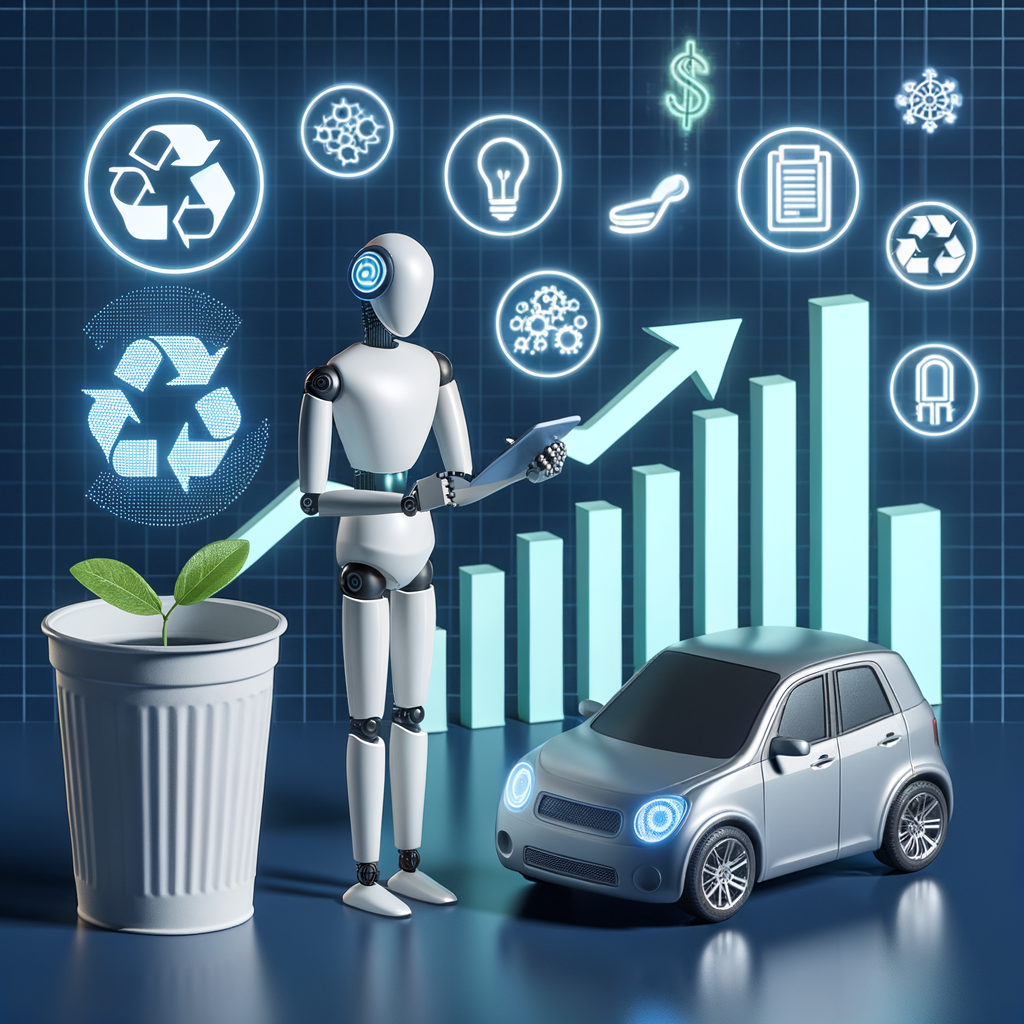AI Phone Agents Enhance Sustainable Automotive Practices
AI Phone Agents Enhance Sustainable Automotive Practices

Enhancing Sustainable Automotive Practices with AI Phone Agents
In the world of automobiles, sustainability has become more than just a buzzword. It’s a necessity driven by global concerns over climate change, dwindling natural resources, and the push for cleaner, more efficient transportation solutions. One of the most exciting advancements aiding this shift is the integration of AI phone agents into automotive practices. But what exactly does this involve, and how is it making a difference? Let’s dive into this fascinating subject.
The Role of AI in Automotive Sustainability
Understanding AI Phone Agents
AI phone agents are artificial intelligence systems designed to handle customer interactions, support services, and various logistical tasks via telephone. These agents can process natural language, understand queries, and provide accurate, timely responses.
How AI Phone Agents Work
Using advanced machine learning algorithms, AI phone agents analyze speech patterns, context, and sentiment to interact effectively with users. They can handle everything from customer service inquiries to complex troubleshooting scenarios, often more efficiently than human representatives.
Impacts on Supply Chain Management
The automotive supply chain is intricate, involving numerous parts, suppliers, and logistics providers. AI phone agents streamline this process by coordinating orders, managing inventory levels, and predicting supply chain disruptions before they occur. This level of foresight reduces waste and enhances resource efficiency.
Sustainable Sourcing and Procurement
AI-driven procurement aids in sourcing materials ethically and sustainably. By analyzing vast datasets, AI phone agents can recommend suppliers who meet green standards, ensuring the materials used in production are as eco-friendly as possible.
Enhancing Vehicle Efficiency
Smart Manufacturing Processes
AI phone agents contribute to optimizing manufacturing processes. They can schedule maintenance, predict machinery failures, and ensure that factories operate at peak efficiency. This reduces energy consumption and minimizes the carbon footprint of production plants.
Predictive Maintenance
Predictive maintenance is a game-changer for sustainability. AI phone agents can alert automotive companies to potential vehicle issues before they become significant problems, reducing the need for extensive repairs and decreasing the likelihood of vehicle breakdown, which often leads to environmental harm.
Customer Interaction and Satisfaction
AI-Powered Customer Service
Customer service is another area where AI phone agents shine. They provide 24/7 support, handle a high volume of calls simultaneously, and resolve issues quickly. This leads to increased customer satisfaction and loyalty.
Personalized Customer Experiences
By learning from previous interactions, AI phone agents offer personalized recommendations and solutions. This not only improves customer satisfaction but also encourages the adoption of sustainable practices, such as promoting fuel-efficient vehicle usage and maintenance tips.
Training and Skill Development
As AI phone agents take over more routine tasks, employees can focus on skill development and innovation. Automotive companies can train their workforce in sustainable practices, advanced manufacturing techniques, and other areas critical to future growth.
Environmental Impact Assessment
Tracking and Reporting
AI phone agents assist in tracking a company’s environmental impact. They gather data on emissions, energy use, and resource consumption, generating comprehensive reports that help companies comply with environmental regulations and improve their sustainability efforts.
Carbon Footprint Reduction
Sophisticated AI algorithms identify key areas where carbon emissions can be cut. By advising automotive companies on best practices, such as optimizing route planning for deliveries, AI phone agents play a crucial role in reducing the industry’s carbon footprint.
The Future of AI in Automotive Sustainability
Innovative AI Technologies
The future holds even more promise. Innovations in AI technology, such as advanced machine learning models and enhanced natural language processing, will further revolutionize the automotive industry. These technologies will make AI phone agents even more efficient and capable.
Autonomous Vehicles
Autonomous vehicles are a significant part of this future. These AI-driven vehicles will reduce emissions by optimizing driving patterns, reducing traffic congestion, and promoting shared mobility solutions. AI phone agents will be integral in managing these autonomous fleets.
Challenges and Considerations
Despite its potential, integrating AI into automotive practices isn’t without challenges. Concerns about data privacy, the complexity of AI implementation, and the need for substantial upfront investment are significant hurdles. However, the long-term benefits far outweigh these initial concerns.
Regulatory and Ethical Issues
AI systems must adhere to strict regulatory standards, especially concerning data security and ethical use. Companies must navigate these waters carefully to avoid legal pitfalls and ensure their AI implementations are ethically sound and socially responsible.
Conclusion
AI phone agents are not just enhancing the customer experience; they are driving the automotive industry towards a more sustainable future. By optimizing supply chains, improving manufacturing efficiency, aiding in predictive maintenance, and offering unparalleled customer service, these intelligent systems are reshaping the landscape. The journey towards sustainability is ongoing, and AI phone agents are proving to be indispensable allies in this essential transformation.
FAQs
1. How do AI phone agents improve automotive sustainability?
AI phone agents improve sustainability by optimizing supply chains, predicting maintenance needs, and enhancing manufacturing processes, leading to reduced waste and lower carbon emissions.
2. What are some examples of AI phone agents in the automotive industry?
Examples include virtual customer service agents handling inquiries, AI systems managing inventory and procurement, and predictive maintenance tools monitoring vehicle health.
3. What are the challenges of integrating AI into automotive practices?
Challenges include data privacy concerns, the complexity of AI implementation, substantial upfront costs, and navigating regulatory and ethical issues.
4. How can AI phone agents enhance customer satisfaction?
AI phone agents offer 24/7 support, handle high volumes of calls, and provide personalized recommendations, leading to quicker issue resolution and higher customer satisfaction.
5. What is the future of AI in automotive sustainability?
The future includes innovations in AI technologies, increased use of autonomous vehicles, and even more efficient and capable AI phone agents driving the industry toward greater sustainability.

